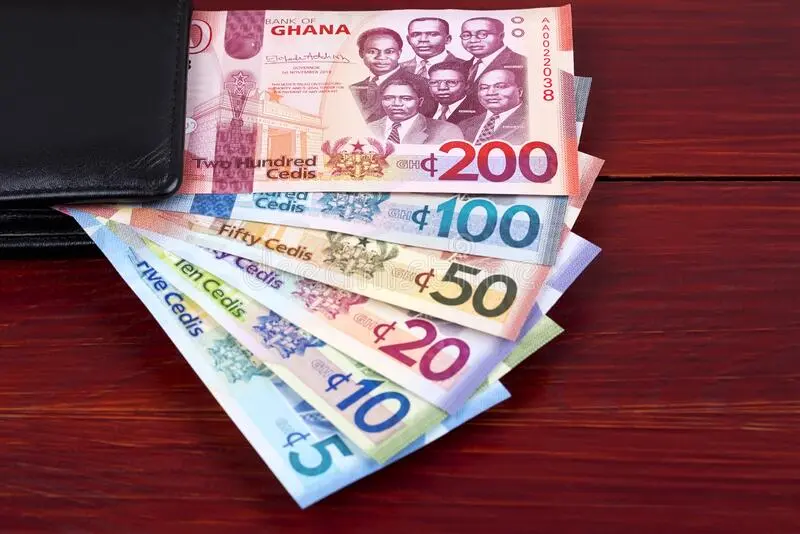Ghana’s currency, the cedi, has continued to maintain relative stability against the US dollar and other major international currencies, as noted in the latest figures released by the Bank of Ghana.
As of Tuesday, the cedi was trading at GH¢10.44 for buying and GH¢10.45 for selling against the US dollar on the interbank market. This signals a period of calm for Ghana’s local currency amid ongoing efforts by the Bank of Ghana to manage inflation and rebuild foreign reserves.
According to the Bank of Ghana’s daily update, the British pound is currently being bought at GH¢14.12 and sold at GH¢14.14. The euro, on the other hand, is trading at a buying price of GH¢12.27 and a selling price of GH¢12.28 on the interbank market.
Retail forex traders and some black market operators are quoting slightly higher figures. A spot check by Journalists revealed that some forex bureaus across the country were selling the dollar at GH¢12.10 and the British pound at GH¢16.35. The euro was seen selling at GH¢14.20 in the retail market, reflecting a small premium over the official rate.
Despite the gap between official and retail forex market rates, the cedi has seen a notable level of strength this year. The Governor of the Bank of Ghana, Dr Johnson Pandit Asiama, disclosed recently that the cedi appreciated by 42% within the first six months of 2025. This development has come as a relief to both businesses and individuals who rely heavily on imported goods and services.
Dr Asiama attributed this strong performance to a mix of factors including disciplined monetary policy, improved investor confidence, and support from Ghana’s ongoing economic recovery program backed by the International Monetary Fund (IMF). The Bank of Ghana has also increased foreign exchange interventions to help keep the cedi stable in the face of inflationary pressures.
Analysts believe that the central bank’s move to maintain tight monetary conditions has helped to slow down inflation and prevent excessive demand for foreign currency. This has created a more predictable environment for traders and importers who rely on currency stability to plan business operations.
The performance of the cedi is also being closely monitored as Ghana moves deeper into the second half of the year. With global economic uncertainties, fluctuating oil prices, and external debt payments to consider, currency stability remains a major priority for the government and central bank.
Ghana’s import and export dynamics have also contributed to the cedi’s resilience. While the country continues to depend on imports for most manufactured goods, strong export revenues from cocoa, gold, and oil have helped to increase foreign exchange inflows. The IMF program has also provided crucial support to the central bank’s reserves, giving it more strength to defend the cedi when necessary.
The cedi’s stability is likely to influence consumer prices, interest rates, and overall economic confidence. A weaker cedi often leads to higher costs for imported goods, which in turn affects inflation and the general cost of living. So far, businesses are cautiously optimistic that the current trend will continue, especially as the country approaches the fourth quarter.
The government of Ghana, under President Nana Addo Dankwa Akufo-Addo, has made currency stability one of its economic goals, alongside job creation, foreign investment promotion, and inflation control. While challenges remain, the Bank of Ghana’s consistent engagement with the forex market appears to be yielding positive results.
Looking ahead, financial experts warn that continued discipline in fiscal management, timely debt servicing, and export growth will be crucial if the cedi is to remain stable throughout 2025.
